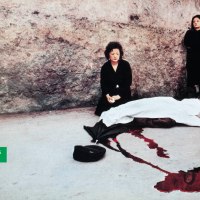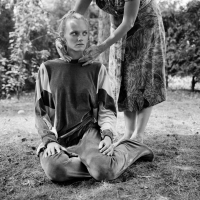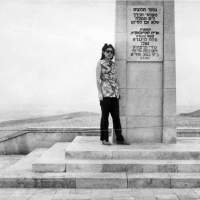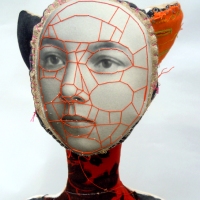 James Frey photographed in 1994, shortly after coming out of rehab.
James Frey photographed in 1994, shortly after coming out of rehab.
In an article by Anna Iatsenko published in Paradoxes of Authenticity (2012), the author speaks about what came to be known as The James Frey Controversy, a situation involving the writer and the TV tycoon Oprah Winfrey. The story concerns Frey’s book A Million Little Pieces, which he promoted as an autobiography about his outlaw period with alcohol, drugs and crime. Back in 2005, in one of her monthly Book Club reviews, Oprah decided to recommend, gift and promote Frey’s so-called autobiography, emphasizing the huge impact it had on her, her family and her crew.
Because Oprah is an alpha-consumer (the concept goes back to Charles Lindholm‘s Culture and Authenticity, 2008), after the book appeared on air, the audience flew to the bookstores, eager to share Oprah’s emotional experience. The events took place in the following order: 26th October 2005, Oprah invites Frey to her show, to speak about his book; sales go up the roof, hitting close to 2 million; 8th January 2006, The Smoking Gun exposes Frey’s story with an article entitled The Man Who Conned Oprah; 11th January 2006 Frey goes on Larry King‘s show and starts to answer some questions; Oprah calls by the end of the program and reassures her support on Frey’s work; 26th January 2006, Frey returns to Oprah’s stage, who by the time had reviewed her position on the entire situation and goes on to confront him and accuse him of lying; five years later, both on the 16th and 17th May 2011, in the last season of her show, Oprah airs a two part conversation with Frey, apologizing for her lack of compassion and so on.
In Oprah’s words, this has been the biggest controversy that had ever hit the show in 25 years. I’m interested in the way questions of authorship reflect on the issue of biographical authenticity but, overall, what really intrigues me is the degree of expectation created in the context of a promise of authenticity. In conversation with King, Frey claims he had written a memoir but then the publisher decided to promote it as an autobiography. At a given point King says:
“People reading a memoir expect it to be a true story, whether it’s Alan Alda doing a memoir of his life or James Frey doing a memoir of his, that the facts written down as they happened or their perception of their happening.”
To what Frey responds:
“It’s an individual’s perception of what happened in their own life. This is my recollection of my life. A lot of the events I was writing about took place between 15 and 25 years ago. A lot of the events took place while I was under the influence of drugs and alcohol. I still stand by my book. I still stand by the fact that it’s my story. It’s a truthful retelling of the story.”
In the article That is Real, Iatsenko highlights some moments in the controversy, namely Frey mentioning to King the importance of an “essential truth”. arguing that in spite of the falsity of the stories described in the book, the experience still had “emotional truth”:
“In the memoir genre, the writer generally takes liberties. You know, you take liberties with time because you’re compressing time a lot. You take liberties with events and sequence of events. The important aspect of a memoir is to get at the essential truth of it.”
Oprah’s first comment since the beginning of the controversy was in the form of a phone-call to Larry King Live. Though the audience was expecting Imaculate-Oprah to condemn Fraud-Frey, she reinforced her support for the book, saying:
“And I feel about “A Million Little Pieces” that although some of the facts have been questioned — and people have a right to question, because we live in a country that lets you do that, that the underlying message of redemption in James Frey’s memoir still resonates with me. And I know that it resonates with millions of other people who have read this book and will continue to read this book”
Two weeks after King’s program, Frey and his publisher Nan Talese, are invited back to Oprah’s to discuss the following question: Can you promise people the truth and then not deliver it? Frey is then subjected to an exhausting questioning of the facts he wrote about, the same facts that weeks before Oprah had qualified as “irrelevant”. (Larry King Live) Oprah tells him how she feels “really duped” and how he “betrayed millions of readers”.
Althoug Frey has sold over 4 million copies of A Million Little Pieces, the battle with Oprah left its marks and the scandal forced Frey to move to France with his family. But despite the personal injuries and the amount of lawsuits for damages caused by the book, these attempts to punish someone of inauthenticity forever changed the lexicon of authenticity.







